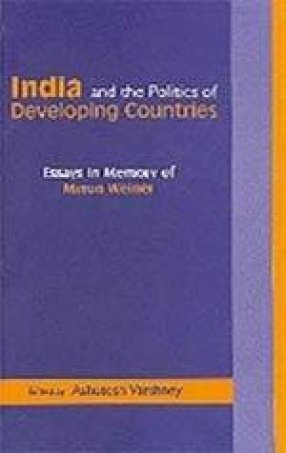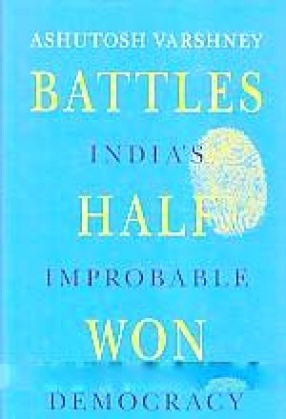The baffling complexity of Indian politics has engaged the attention of many a political scientist. It has also led some to remark on its exceptional nature. Several key insights into the dynamics of Indian politics have been possible because of attempts at both theoretical formulations and comparison with other developing countries. These methods served as the foundation for Myron Weiner’s engagement with India. His formidable intellectual acuity was solidly grounded in methodological clarity–a feature that also informs the essays in this volume. This important volume brings together renowned scholars who take Myron Weiner’s original, pioneering an often surprising insights into a wide range of themes-democratization, party politics, pressure groups, federalism, caste, identity politics and ethnic conflict, affirmative action, public policy, and political economy-as their starting point to arrive at conclusions that validate or extend Weiner’s works. Divided into three parts-Party politics and democracy, Ethnic politics and Political economy-the essays in the book critique conventional wisdom and some well-known theoretical positions. Some of the important issues that have been discussed are: How the Congress party’s institutionalized hegemony and effective handling of centre-local relations shaped the successful democratization of Indian politics, The crucial, yet little studied, role of informal political functionaries, or ‘fixers’ in a democratic and federal set up, How the internal organizational structure of a party and not its ethnic base, as is mistakenly believed, determines the success of a political party, Why the state’s position vis-a-vis multiculturalism in India is an awkward phenomenon where religion becomes a factor in certain spheres but not in others, Why the Lijphart’s well-known consociational theory does not apply to India, where more consociationalism does not mean more stability but greater ethnic violence, How fertility rates are not related so much to income levels and growth rates as to hierarchical structures and social values, How the failure to end mass poverty in India is partly a function of the mode of governance, How the contingencies of the Indian political system force most political parties to adopt a centrist stance when in power. With its numerous insights combined with a lucid and accessible style, this book will be an important reference for scholars, students and commentators of Indian politics.
India and the Politics of Developing Countries
In stock
Free & Quick Delivery Worldwide
reviews
Bibliographic information
Title
India and the Politics of Developing Countries
Author
Edition
1st ed.
Publisher
ISBN
8178294133
Length
271p., Tables; Figures; 22cm.
Subjects







There are no reviews yet.